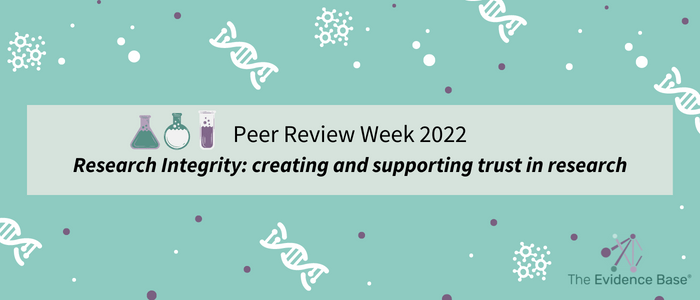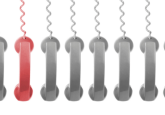Peer Review Week: highlighting the role of peer review in creating and supporting trust in research

This week (19–23 September) is Peer Review Week 2022, the theme of which is “Research Integrity: creating and supporting trust in research”. Peer review is a continuing subject of debate in the research community – most agree on its value in underpinning the publication of high-quality research, but there are undeniable difficulties in how current systems of peer review operate and there is a real need for innovation to address these.
In August, Kaltenbrunner (Leiden University, The Netherlands), along with colleagues from the University of Sheffield (UK) and VolkswagenStiftung (Germany), conducted a survey among stakeholders such as publishers and academic journal editors to provide an overview of current innovations in peer review and their potential impacts. In this article, they identify four “schools of thought” on the subject:
- Quality & Reproducibility school
- Democracy & Transparency school
- Equity & Inclusion school
- Efficiency & Incentives school
The findings also highlight that the innovations “partly pull in mutually opposed directions”, and this is a fundamental challenge of reforming peer review – how do we make things quicker and more efficient, but at the same time continue to underpin and improve research integrity? The authors conclude that the fault lines identified between the different innovation projects “suggest a need for better coordination”.
I recently attended an interesting session at the Association of Learned and Professional Society Publishers (ALPSP) Conference on “What Does the Future Hold?”, in which the panellists discussed several ways the scholarly publishing industry may change in the next 50 years. One speaker, Ritu Dhand (Springer Nature) discussed the topic of peer review, and the challenge faced by researchers when reviewers make recommendations or requests for further experimental work to be conducted. Would it not be more sensible, not to mention time-efficient, for peer review to take place before the work even begins? To formally peer review protocols and study designs, perhaps coordinated by journals, to identify potential areas of concern before work commences and analysis takes place. To conduct further work after the final paper has been written can lead to delays, and in some cases might not even be possible (leading to a caveat in the article’s limitations section to that effect). To support trust in research, making the final output as impactful as possible could only be a good thing.
As many of the posts published for this Peer Review Week have highlighted, peer review has an essential role to play in supporting research integrity. To ensure this is optimized, the various stakeholders will need to come together in a collaborative way to ensure the most useful innovations are adopted to the benefit of all.




